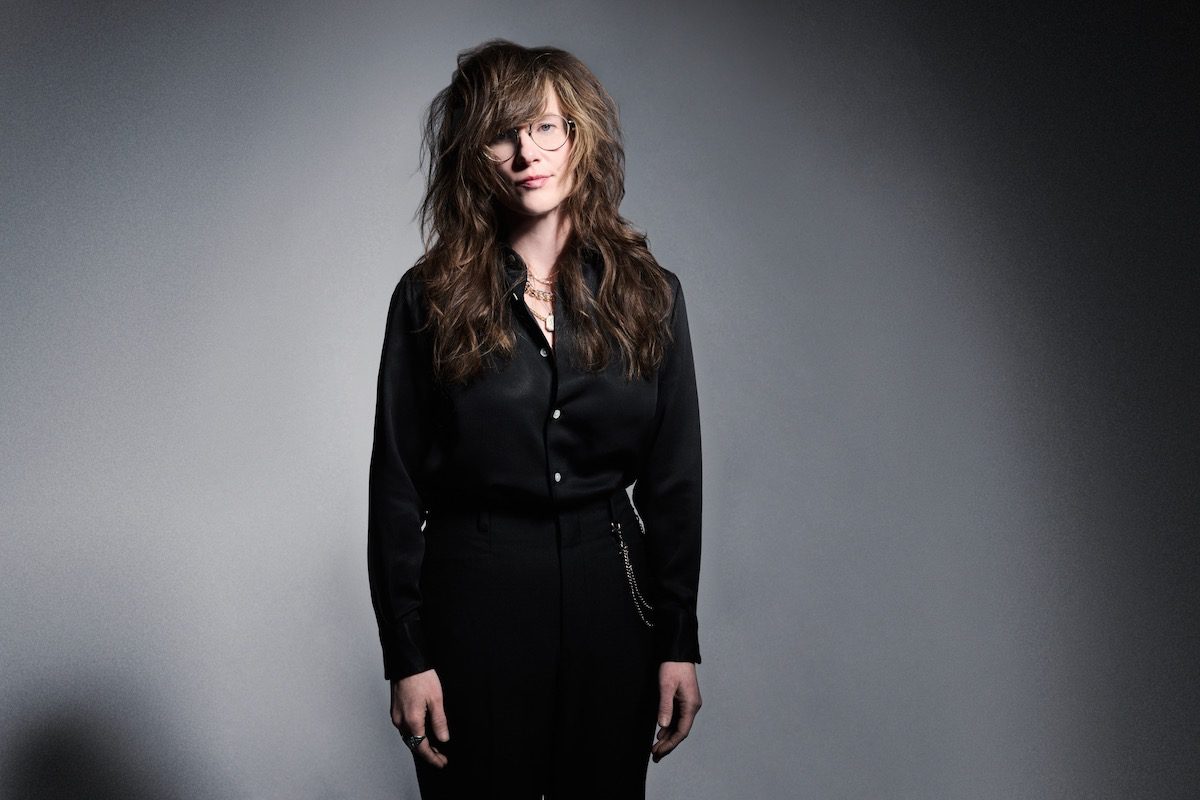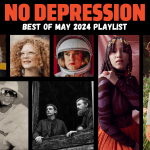SPOTLIGHT: S.G. Goodman on Writing Through OCD and Finding Where to Shine the Flashlight

Photo by Meredith Truax
EDITOR’S NOTE: S.G. Goodman is No Depression’s Spotlight artist for June. Learn more about her and her new album, Teeth Marks, in our interview, and look for more from Goodman all month long.
If you fancy yourself a cinema fanatic, like many of my close friends do, you will also be ashamed to know that I became pen pals with famed screenwriter and director Paul Schrader without knowing who he was or ever having ever watched any of his work. I don’t watch movies or own a TV. That’s not some kind of proud declaration of self-discipline, or even a lifestyle choice due to my time being more revered or consumed by greater things. It was a choice I had to make out of self-protection.
Like I anxiously explained to Paul in one of our emails after he asked if I had ever watched his movie The Light Sleeper, I don’t watch movies or own a TV because I’ve found certain images are harmful to me because I live with obsessive compulsive disorder.
So no, I answered, I hadn’t seen that movie, or any of them, and that if he wanted me to view one of his films he would have to tip me off to any moments or scenes that could be triggering. As many folks do with mental illness, I’ve learned to navigate my life within its limitations, and through therapy and grace extended by others, I am still learning how OCD expands how I experience the world around me.
Though I would never be voted Most Likely to Help You Win at Pop-Culture Trivia, I could very easily be voted Most Likely to Report You on Social Media for Graphic Content. That would include images of bloody newborns, pictures of surgery scars, or even trailers for movies that evoke too much suspense. None of those things are troublesome in theory, but unfortunately for my social media friends, the hand I drew at birth landed me with a brain that doesn’t always operate logically. Despite my efforts to control images or thoughts that could lodge in my mind for months at a time, life still happens to me. Here is the way writing serves as a healthy outlet; it’s where I’m able to find purpose and use for those moments when my brain isn’t always kind.
“I went through a phase of setting people’s hair on fire.”
“I never knew the little dog whose body, due to the force of the airbag, shot through my little sister’s torso.”
Those are opening lines to a couple of short stories I’ve been working on. Along with songwriting, I try my hand at short stories every now and then. In college, I studied under Dale Ray Phillips, who probably while chain-smoking through the first-floor window of a classroom told his students to write what they know and explained how, as a writer, you hold the flashlight that shines on what the reader will see.
As a writer, what we choose to illuminate is typically all the reader or listener will be privy to. So it hasn’t been often that I’ve gone into depth on how OCD contributes to my stories or songs, and how many of the details present in my work come from obsessive thoughts. One wouldn’t know that my line about setting people’s hair on fire originates from being at a coffee shop where I witnessed a girl’s hair blow into the flame of her cigarette lighter and then vanish to her hairline. My brain convinced me of the possibility that my presence was responsible for the mishap. I know this doesn’t make logical sense, but this is a symptom I struggle with — the belief that if certain rituals (compulsions) are not performed, an undesired outcome will follow.
The line about the dog shooting through a character’s body was constructed after I was in four car accidents in a single year. I would like to mention here that they were no fault of my own — I’m a decent driver, just simply a victim of non-decent drivers. In one of the accidents I was holding my dog, Howard, in my lap. After being T-boned close to my house, I spent the next several months with the invasive image and all-too-realistic feeling of my dog’s bones being shot through my chest from the impact. That didn’t happen, of course, but my brain replayed (on repeat) a story where it did.
I have learned to take to pen and paper when I find myself in illogical thought loops, or when I home in on minute details of unknown importance. Without the world having access to my phone graveyard, it would be hard to show how song melodies construct over years of obsessing. In the same way that images get lodged and put on repeat in my head, so do song melodies. Often for years on end before they go about their business and inform where it is I’m supposed to shine my flashlight for the listener.
Being that I’m writing a piece for a music publication, let me focus on one track in particular from my new album, Teeth Marks. My song “If You Were Someone I Loved” dates back in my phone graveyard to probably 2015. Not in its entirety, but as a lyric melody that had no words or true structure. Just a hum and a feeling that would get lodged into my brain until it forced me to spend time on it. To be honest, my experience with writing songs has always felt so similar to a compulsion that was trying to relieve an obsession. Which is why my relationship to the act of songwriting often takes the same kind of acceptance and self-love to appreciate as my former compulsion to shake my grandmother’s earrings after washing my hands. I don’t always want to do it, but it relieves something in me.
While in conversation with others, my mind can be mean and convince itself that I can’t finish a story properly without providing a play-by-play of every detail that to me is pertinent. I’m often kindly reminded (and sometimes unkindly) that I’m talking in circles. What I’ve found through therapy is that I’m mentally checking a list of details that must be spoken aloud, unbeknownst to the listener, in order for me to complete a thought. Due to these made-up mental checklists brought about by OCD, I can easily convince myself that a song isn’t finished, and that everything meant to be said has not been. Which was the case with “If You Were Someone I Loved.”
The flashlight Dale Ray said I held as the writer was more like a light pointed at a disco ball that lit up a room containing every possible subject that the lack of human empathy could pertain to — the general theme I felt the song was asking to contain. This is where years of work around my mental illness comes into play, how practices such as cognitive behavioral therapy show up in my writing and help me center myself when things get uncomfortable and allow me to push through conflicting messages my symptoms give life to. In the case of this track from my album, it was hard for me to let go of the reality that as humans we tend to center our truths and compassion to situations where we have firsthand experience. We are more compelled to act in situations where love for the other is present, and consequently are less compelled to act if it’s to someone who is out of our love’s jurisdiction.
Like most folks reading this, I have lost people to the opioid crisis, and I know people who are currently struggling. From this song’s infancy, the subject of a person in the throes of addiction has been present. But pointing my writer’s flashlight solely in the direction of the opioid epidemic didn’t seem to fully capture the underlying question I hoped this song would ask: What does it take for our love to extend to our neighbor? Policies are formed when enough people believe it’s a cause worth fighting for. And many medical schools were started when an affluent family lost a child to a rare illness and then gave an endowment for research. Action around societal problems has been instigated by people having had firsthand experience with tragedy, when the need hits close enough to home for them to take notice. I do believe the subject of the opioid crisis calls for us to ask this question of ourselves. So could the reality of a woman’s ability in making a choice about her own body, or a mother sending her children across the border.
In my practice of cognitive behavioral therapy, I have had to face lesser compulsions than the fear of not saying everything I need to say in a song. I now have dishes sitting in my sink from time to time, when at one point in my life I couldn’t have done another thing in my day until they were clean and in the cabinet. My therapist and I would try to get to the root of the fear that was driving my need to complete that task. “What would happen if you just let them sit there?”, she would ask. I apply that practice of sitting in discomfort to the outcomes I try to control in my writing. I am not in control of how my work sits with others. Listeners will only see where I choose to shine my flashlight, and won’t know the many versions I believe a song could go. I just have to trust that where I shine my flashlight is the story going about its business, and in turn, that it became what it was meant to be.




